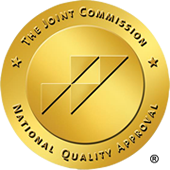Experiential Therapy in Texas
Many clients with co-occurring disorders find breakthroughs when engaging in hands-on therapeutic activities—whether through adventure therapy, psychodrama, art interventions, or mindfulness-based practices. These immersive experiences create new neural pathways, helping you:
- Release trauma stored in the body
- Practice healthy coping skills in real-time
- Rebuild self-confidence through achievable challenges
Our experiential therapy program is integrated with evidence-based clinical care to address both addiction and mental health holistically. You’ll work with compassionate specialists who meet you where you are because recovery isn’t just about thinking differently, but experiencing differently.
Ready to begin? Our admissions team is available to discuss how experiential therapy can unlock your path to wellness.

Is Addiction Impacting Your Life?
Take The First Step To True Healing Today!
What is Experiential Therapy?
Experiential therapy is an effective approach in addiction treatment that helps address the neurological aspects of addiction and targets specific conditions and symptoms. Experiential therapies place patients in settings where they feel at ease, such as natural outdoor spaces or creative environments, like art or music studios, to help individuals engage in activities that process emotions and develop new coping skills. This method explores and processes emotions associated with their addiction through a nontraditional, practical approach.
Additionally, experiential therapy can be utilized to address several co-existing mental health issues, including anxiety disorders, depression, obsessive-compulsive disorder (OCD), eating disorders, and post-traumatic stress disorder (PTSD), among others.
How Does Experiential Therapy Work in Addiction Recovery?
Experiential therapies involve hands-on, interactive activities designed to assist individuals grappling with drug or alcohol addiction in processing and managing past trauma. This form of addiction counseling employs unconventional treatment environments to aid individuals in addressing suppressed emotions and feelings. Some individuals may feel uneasy discussing their issues with therapists in a conventional counseling atmosphere.
Activities that require physical exertion, such as rock climbing and hiking, help replicate real-world stress in a context that makes it manageable. Experiential therapy can instruct those undergoing treatment on how to handle daily stressors, including cravings and triggers related to substance abuse. Individuals with an addiction may exhibit less defensiveness during experiential therapy, facilitating more precise evaluations by therapists and promoting mental healing for the individual.
This type of therapy has demonstrated effectiveness in addressing various disorders that frequently accompany addiction. Treating these co-occurring disorders in conjunction with addiction can alleviate mental health-related stress and triggers, thereby lowering the chances of relapse.
Neurological Basis of Experiential Therapy
Addiction changes the brain’s reward system, making it hard for individuals to feel pleasure. Experiential therapy activates regions involved in emotions and memories. Activities like art, drama, and outdoor adventures stimulate these areas. Engaging in these tasks can promote healing by creating new, positive associations and reducing reliance on substances.
Therapeutic activities help rewire brain pathways. This process, known as neuroplasticity, is crucial in addiction recovery. By participating in experiential therapy, patients can form healthy habits and emotional responses, aiding in long-term recovery.
Role in Substance Use Recovery
Experiential therapy provides a hands-on approach to overcoming addiction. Activities such as trust exercises, problem-solving tasks, and outdoor experiences foster personal growth. These activities allow you to express yourself and confront unresolved emotions, which is vital in the healing process.
Experiential therapy helps build self-esteem and develop healthier coping mechanisms. By engaging in these therapeutic activities, you can better understand your triggers and find positive ways to deal with stress. This approach complements other addiction treatments, such as counseling and medication, creating a comprehensive recovery plan.
Conditions and Symptoms Addressed
Experiential therapy is effective in treating various conditions and symptoms related to substance use disorders. This therapeutic method is beneficial for co-occurring disorders, such as depression, anxiety, PTSD, and other mental illnesses. It helps individuals explore and process trauma, reducing the impact of these co-occurring disorders on addiction.
Participating in experiential therapy can alleviate withdrawal symptoms and prevent relapse, which makes it the perfect follow-up therapy for medical detox. Activities designed to address emotional pain and foster resilience make it easier to maintain sobriety. This therapy supports the healing journey by providing tools to manage both addiction and associated mental health conditions.
Benefits of Our Gender-Specific Experiential Rehabilitation Program
Creating a Safe Space for Self-Expression
In these tailored groups, you’ll find:
- Deeper vulnerability: Discuss trauma, shame, or societal pressures with peers who share similar lived experiences
- Targeted therapies: Gender-specific evidence-based approaches (e.g., trauma-focused care for women or emotional regulation tools for men)
- Stronger connections: Build trust and accountability within a community that understands your journey
For men, our men’s addiction treatment program addresses masculinity norms, fatherhood, and emotional expression. For women, women’s addiction treatment focuses on body image, relational trauma, and self-worth. Both empower you to heal authentically.

Developing Lasting Peer Connections
Building connections with peers of the same gender can lead to stronger bonds and mutual support. These relationships provide a network of understanding and encouragement essential for long-term recovery.
Contact Our Admissions Team Today
Nurturing Group Solidarity
Fostering a Focused Healing Environment
Our residential treatment program offers a concentrated healing environment by eliminating mixed-gender distractions. Therapies like CBT, EMDR, and solution-focused therapy are tailored to your needs, addressing all aspects of your mental, emotional, and physical health.
Our gender-specific experiential rehabilitation program provides a supportive path to lasting recovery.
Testimonials
![]()
![]()
![]()
![]()
![]()
Victoria H
I couldn’t recommend Origins more, I first attended their IOP program, then their residential program in South Padre. I’m writing this today a year and a half sober and going strong. Origins has literally saved my life in more ways than one.
![]()
![]()
![]()
![]()
![]()
Emily W
The clinicians are knowledgeable and skilled in a way that is always helpful and never harmful. This program brought me lasting healing and freedom.
![]()
![]()
![]()
![]()
![]()
Mary L
I cannot say enough about Hannah’s House. I entered broken, tired and far more sick than I realized. I was treated with kindness, love, patience and respect by all. I was so frightened to go but sad to leave, that speaks volumes. Thank you from the bottom of my heart to all who put me back together, I am eternally grateful.
![]()
![]()
![]()
![]()
![]()
Jack W
I struggled with my sobriety for over 5 years, but they were able to help me through the 12 steps of AA. I have been sober ever since my experience here. I’ll be hitting 2 years of sobriety in 22 days, thanks to this treatment center. No matter where you go, it’s all about your level of commitment towards gaining a better life ?
![]()
![]()
![]()
![]()
![]()
Jazmine R
Origins was exactly what I needed. The staff were incredibly knowledgeable, compassionate, and helpful. They come with years of experience and consider each individual they’re helping. If you’re looking for a facility that will truly care as much as you/your parents do, or are desperate for a miracle — I can’t recommend Origins more! ❤️
Applying Experiential Therapy in Addiction Recovery at Origins Texas
Experiential therapy at Origins Recovery Texas enhances traditional treatments. This approach uses real-life experiences to help individuals understand and process their emotions. It’s especially useful in addressing substance use disorders and related mental health issues.
Complementing Traditional Therapeutic Approaches
Experiential therapy works alongside methods like Cognitive Behavioral Therapy (CBT). While CBT focuses on changing thought patterns, experiential therapy allows you to explore and express your feelings in a hands-on way. Activities such as role-playing address emotional and psychological aspects of recovery.
This combination leads to heightened self-awareness and emotional understanding. Experiential therapy often provides a unique perspective on the challenges of addiction, offering deeper insights and healing opportunities.
Key Focus Areas During Experiential Therapy
Key aspects of this therapeutic approach include building trust, improving self-esteem, and confronting deep-seated emotions. By participating in trust activities and cooperative games, you can recognize and deal with emotional responses tied to substance use.
The therapy also focuses on psychoeducation, which teaches you about your addiction and the recovery process. This knowledge empowers you to make informed decisions and fosters a sense of control over your recovery journey.
Specific Experiential Therapies Offered
At Origins Texas, various experiential therapies are available. These include problem-solving initiatives designed to mirror real-world challenges. Outdoor pursuits, such as beach experiences, allow you to reconnect with nature and gain perspective.
Other therapies include the creative arts, such as music and art therapy, which provide alternative outlets for emotional expression. By engaging in these activities, you can address buried emotions and develop healthier coping mechanisms for long-term recovery.

Integrating Experiential Therapy with Evidence-Based Treatments
Combining experiential therapy with evidence-based treatments like cognitive-behavioral therapy (CBT) enhances the recovery process. These approaches work together to create a comprehensive, effective treatment experience for individuals.
Combining Experiential and Cognitive Behavioral Therapies
Experiential therapy encourages self-discovery through activities such as art, role-playing, and outdoor experiences. When combined with CBT, which focuses on changing negative thought patterns, you get a powerful tool for recovery.
This mix helps you engage in hands-on activities while also working on changing behaviors and thoughts. Experiential exercises often bring out emotions and thoughts that can be immediately addressed through addiction counseling.
Enhancing Mindfulness-Based Interventions
With mindfulness, you learn to stay present and manage stress. Adding experiential activities allows you to practice these skills in real-life settings. For instance, practicing mindfulness during a nature walk can make it easier to apply these skills in everyday life.
Supporting Trauma-Informed Care
Trauma-informed care acknowledges the impact of past traumas on your current mental health. Experiential therapies can be particularly effective in this context.
Therapies like Eye Movement Desensitization and Reprocessing (EMDR) can be integrated with experiential activities to help process trauma. Combining these approaches enables you to work through past experiences in a safe and supportive environment. This dual approach ensures that trauma treatment is both deep and effective.
Nationally Recognized & Accredited




Insurance Coverage for Experiential Therapy at Origins Texas
You are encouraged to contact our team regarding your insurance benefits. The admissions team can help you understand what your plan covers, ensuring you receive the care you need without financial concerns.
Find Your Path to Recovery With Experiential Therapy
Experiential therapies, including outdoor pursuits and team-building activities, foster recovery in a supportive, engaging environment. If you’re ready to start your journey to recovery in South Padre Island, TX, contact us today to speak to an admissions specialist.













